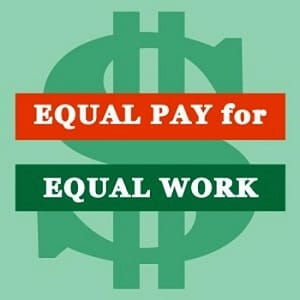
For more than 35 years, California courts have accepted that the wage history of a newly hired person’s prior salary as a “factor other than sex” in determining their current pay rate. A 2018 Court of Appeal decision found that an employer justifying an employee’s current wage based upon previous employment compensation creates or perpetuates gender or race discrimination. It may be time for your company to revisit your hiring and employment practices, especially differences in compensation between your male and female employees to ensure that compensation differences are legally “job related.”
As enacted, no employer having employees subject to the Equal Pay Act and the Labor Code shall discriminate between employees doing work requiring “equal skill, effort, and responsibility,… under similar working conditions” unless the reason is based upon:
- a formal seniority system;
- a formal merit system;
- a formal system which measures earnings by quantity or quality of production; or
- a differential based on any other factor other than sex. 29 U.S.C. § 206(d)(1) (emphasis added).” Rizo v. Yovino (Id.)
Employer Take-Aways:
- An applicant’s prior salary history no longer establishes an employer’s defense to justify pay differences among employees of a different gender or race.
- Prior salary is “not a legitimate measure of work experience, ability, performance, or any other job-related quality” to determine a new employee’s initial salary.
- Where an employer uses prior salary to establish current salary, an employee may successfully bring a lawsuit against your company for a violation of non-job related wage differences or discrimination.
- In order to be sued for discrimination, your employee only needs to establish that they are receiving less compensation for equal work. The employee does not need to show any intent by the employer to discriminate.
